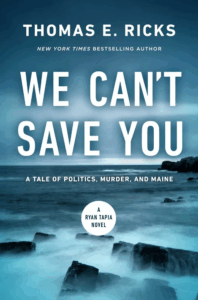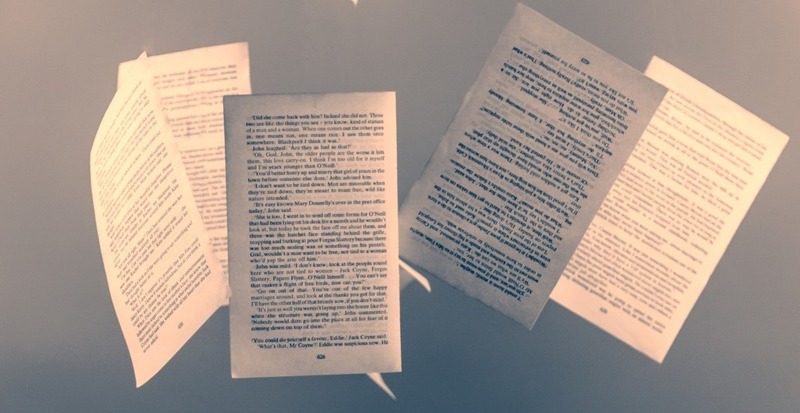There are two different aspects to writing a nonfiction book. The first is what people think writing a book is like. The other is what it really is like.
Article continues after advertisement
Generally, people think writing a book goes something like this: You get a good idea, you sit down and think and write big thoughts for maybe ten months, and then you go back to whatever you were doing before.
The reality, of course, is more complicated.
First, you get an idea about something you see as a rich, deep, important subject. At this point, it helps to find a literary agent. They are helpful if only to tell you that your big idea isn’t original, or that publishers took a bath last year on books like that and now you couldn’t get that published by anybody.
Readers can smell boredom like dogs can smell fear. And the easiest thing in the world for a reader to do is to stop reading.
How do you find an agent? Unless you have friends in the publishing industry (in which case, you probably already know what to do) I recommend these two avenues: Look for agents of authors who have written books similar to your book, and agents of your favorite contemporary authors. One of the best way to find those agents is looking in the acknowledgement sections of those books. (Agents usually get early and effusive mentions.)
Landing an agent is a tricky business, but for nonfiction projects, it helps to have a very clear idea of not only what your project is, but where it fits into the current market.
Once you’ve landed an agent (congratulations!) it’s time to start working on your proposal.
A book proposal should be between ten and twenty-five pages—enough to whet buyer’s appetite, but not so much that people won’t want to pick it up and read it. It might contain a summary, a proposed table of contents, with a brief description of each chapter. They might ask for a sample chapter. Great if you have one, but if not, one good course is to publish an article that captures some aspect of the book, and to include that in the proposal.
This is a point, by the way, at which your agent can really help. Ask the agent you’ve just hired for one or two proposals he or she has on file that are similar to your book. For my first book, Making the Corps, my agent gave me a copy of the proposal for the book Friday Night Lights. I ripped it off shamelessly.
Remember a book proposal serves two purposes. First, it is a marketing document for your agent to show to editors at publishing houses. Second, it likely will form the structural outline for your manuscript.
After some back and forth (or a lot of back and forth, depending on how stubborn each of you is), you and your agent should have a proposal to send out to editors.
If you are lucky, you will get some offers in response. Those likely won’t be big, unless you already are a celebrity. It is tough to get a big advance on a first book by an unknown author. Nonetheless, you want to get the biggest advance you can. Among other things, it shows a commitment from the publisher to support the book when it comes out. If they just give you $3,000, it is really easy for them to ignore it when it comes out. On the other hand, I have heard that lately, even a big advance doesn’t guarantee a lot of support from the publishing house. Keep in mind that a lot of advances don’t ever “earn out,” so the advance money, whatever it is, may be the last money you ever see from this book project.
Even a large advance is smaller than it initially appears. For one, you usually get the money in increments: A quarter of the advance on signing, a quarter on delivery of what the editor deems to be a publishable manuscript, a third quarter on hardcover publication, and the last on paperback publication. Sometimes this is cut instead into thirds, with fewer steps. (To say nothing of agent fees, and of course, taxes.)
So the grim reality of book publishing is you are almost certainly going to have to write your book on your own dime.
So, where does the money to live on come from? If you have a good policy-oriented subject, maybe you can hang your hat at a think tank that will pay you some money and perhaps even give you a research assistant. If not, then you need other sources—your bank account, maybe your parents, or a very tolerant working spouse. And keep in mind, as you consider the finances of the situation, that writing a book almost always takes longer than the author expected at the beginning. You can also try to write a book while hanging on to a full-time job, but it is tough. I only did it once. I would awake at 4:30, go to my office and work on the book from 6 to 10, and then put in a full day’s work. I sometimes didn’t get home until 9 at night. I was young, but it was still an exhausting year, and I wouldn’t want to do it again.
So, with a contract in hand, and a possible financial plan, you are now, finally, ready to begin writing a book. There are many different ways to do that, and most of them are scary. One of my editors used to say that every good book has at least one nervous breakdown in its background.
Here is what has worked for me.
I like to start with my proposal and to begin expanding it. I keep that up until I have a book on hand. I’ve written ten books. Like children, each one has brought its own rewards and its own problems. But it is possible to make some generalizations.
I usually try to write every day, seven days a week for four or five hours each day. There are so many potential distractions that you really have to be selfish about protecting your time. No matter how many hours you have, you have to defend those writing hours. Close the door, and don’t answer the phone or e-mails.
I don’t wait for inspiration to strike. Instead, I think of writing as like building a house. I have an outline or blueprint. I gather my material—my research being my equivalents of bricks, mortar, nails, and lumber.
I never write when I am tired. And I try never to write stuff that bores me. If it bores you the writer, it will bore your agent, your editor, your reviewer. Readers can smell boredom like dogs can smell fear. And the easiest thing in the world for a reader to do is to stop reading.
Then, many months later, almost certainly longer than you had planned, you finish your first draft.
But you are far from finished. This is the time I think to put it away for at least a week, and maybe a month. Go on a vacation, or fix up your home, or make amends to the people you’ve been neglecting for so long.
Then, after that interval, print out the draft and read it over. Cut out anything that is boring. Tighten it up as much as possible. Slash away at repetition. Look for “throat clearing”—words you wrote when you were figuring out what to say.
Then put it away again for another week. When you pick it up again, print out the revised draft and read it aloud, if you can stand it. I find this really helps me with language, and finding repetitions.
At that point, with a draft I’ve revised twice, I am ready to send out what I call “the first draft” for other people. I try to send it to about ten people—friends I trust, some experts familiar with the subject, someone who knows how to write, and my agent. I ask for their comments within three weeks. This is often the time when I wake up in the middle of night drenched in sweat.
After I’ve collected all that terrifying feedback, I revise. Sometimes this takes a month or two.
The only good reason to write a book is because you have to. It should be something you need to get out of your head, a subject that is obsessing you.
Then, if the agent agrees, it is time to show the book to the editor who bought the book. You wait in agony for the editor to get back to you. And sometimes, when they finally do, the agony intensifies.
For my first book, my editor sent me an 18-page single-spaced letter. He told me to re-write the first half, and do new research for a new ending for a redone second half. For another book, my editor called me up and chewed me out. He hated the first draft I’d sent him. I then spent six months re-doing the book.
Then you do your second draft. Eventually you send it to the editor. Here the process speeds up a bit. You get back an edited manuscript. You review that and make the necessary changes in a few weeks. Then the publisher does copyediting, maybe a legal review, if you are writing non-fiction about contemporary events. You read it again. Now you are quite sick of it.
Then they send you the galleys. At this point it begins to feel like a book. Then, a few months later, a real hardcover book arrives in the mail. It is a magic moment. I sat on my front porch with the bound galleys of my first book and stared at it. I was thinking, “Hey, I really wrote a book!”
It is tempting to say that at this point, the real work begins.
If you are lucky, you begin thinking about publicity. You will meet, probably over the phone, with your book publicist. Ask them for their plans. Listen to them. Then sit down and write a publicity memo, listing audiences that might be interested in the book, groups that might invite you to talk, media shows that seem to be interested in your subject.
Finally, your book comes out. Here’s another shock. It has a shelf life longer than milk, shorter than yogurt. You have about six weeks for your book to make an impression. And then it is over, and you go back to your day job, until you get the itch again. A lot of people don’t.
Ultimately, the only good reason to write a book is because you have to. It should be something you need to get out of your head, a subject that is obsessing you. All good books have passion in them.
The second major ingredient in books, of course, is time. Lots of it. More than you expect. There’s a rule of gathering wood for your fire when camping: Get as much wood as you think you need, then get another stack that size again. A similar rule applies to writing books: It probably will take twice as much time as you expect.
To put it another way, books are sponges for time. Time alone. If you don’t enjoy spending time alone, thinking and reading and writing, then you probably won’t enjoy the process.
__________________________________

We Can’t Save You: A Tale of Politics, Murder, and Maine by Thomas E. Ricks is available from Pegasus Books.
